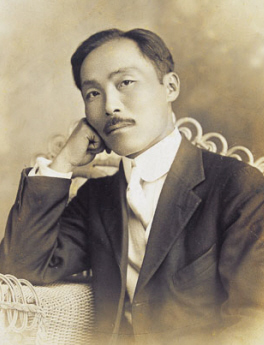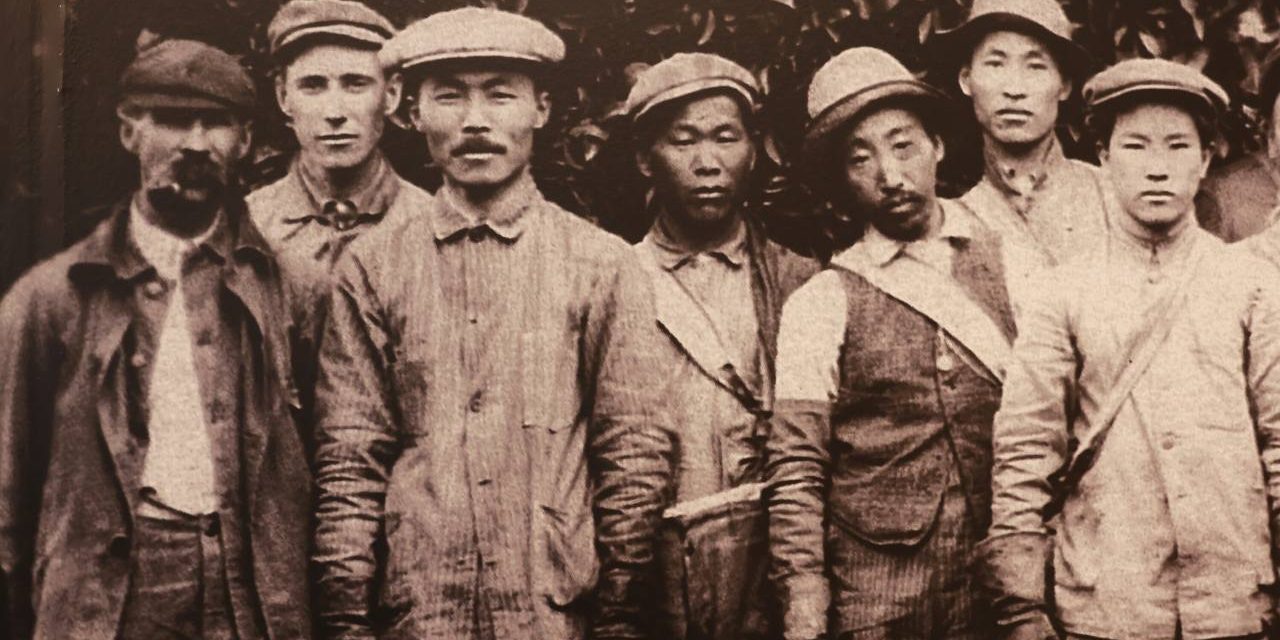
How is Korean culture and history celebrated overseas? (Korean holidays overseas)
In Korea, several holidays commemorate the passage of time and events that led up to the current day, Republic of Korea . Some days celebrate the establishment of the Korean kingdom, the invention of the Korean language writing system (Hangeul), and the Invention of several historical items throughout Korean history. The oldest holiday in Korea is National Foundation Day, which celebrates the expected date that the grandson of heaven, King Dangun, established the first Korean kingdom, Gojoseon, in Korean history. This holiday was established directly after the Provisional Government of the Republic of Korea was signed into action on April 11th, 1919. These holidays were widely established to celebrate and pay respect to the events that took place leading up to the present-day Republic of Korea. However, in the 21st century, countries outside of Korea are also beginning to recognize many achievements of Korean history and its historical figures. Western countries are also formally celebrating these achievements and their long-lasting effects on the modern world. In this article, we will explore how countries like the United States, celebrate Korean historical events and people through national holidays.
Jikji Day
The House of Representatives in California adopted a resolution to enact Jikji Day last June after the ‘Jikji’. The ‘Jikji’ book was printed in Cheongju by the world’s oldest movable metal type. The Cheongju Printing Museum revealed this fact and reported it on June 22 with the consent of the 66 attending lawmakers. Choi Seok-ho, the leader of Korean American activities in California, stood as a representative for these efforts and led the corresponding vote. The California House of Representatives was the first to adopt a resolution to enact ‘Jikji Day’ in the United States. Jikji was registered under UNESCO as the oldest metalloid type on September 4, 2001. After that, the Jikji Memory of the World Prize was created on the same day in 2004 to commemorate the creation of the Jikji. The Cheongju Printing Museum delivered a letter of appreciation to the leading chairman of the resolution, Choi Seok-ho, expressing gratitude for the resolution and respect for his past activities. Choi has represented the voices and stories of Koreans in California over the last decade by presenting and passing various Korean history-related holidays such as “Dosan Ahn Chang-ho Day” and “Kimchi Day” to the California congress legislature. Jikji was originally written by Baek Un-Hwa, a Buddhist monk in the late Goryeo Dynasty. He edited and recorded the teachings of Sakyamuni and Seonchin monks. It was then printed and copied with movable metal types by the disciples of Baek Un-hwa, Seok-chan, and Daljam. Jikji was printed with movable types, made of various metals, such as lead and copper. Currently, it is recognized globally as the oldest metal type print in the world. It was published at the Heungdeoksa Temple, Cheongju, in 1377. To date, only the second of the two volumes has been found. Currently, it is managed as an international treasure in the National Library of France. The most interesting fact is only one book exists. Jikji was published 78 years earlier than the Gutenberg Bible, which was previously believed to be the oldest printed text in the world.

Dosan Ahn Chang-ho(1878-1938) Day
Ahn Chang-ho, an independence activist, became the subject of the first holiday established to solely celebrate a foreign activist in California. It was the first time in California history that the birth date of a foreigner was recognized as a state-wide holiday. On August 13th, 2018, two days before Korean National Liberation Day, a group of lawmakers led by Choi Seok-ho adopted a resolution to enact Dosan Ahn Chang-ho Day, in honor of the late Korean independence fighter. It was passed under mutual consensus in the House of Commons. The anniversary is celebrated on November 9th, in honor of Dosan Ahn Chang-ho’s birthday. At the enactment ceremony, Representative Choi Seok-ho explained that when the independence activist came to San Francisco in 1902, he greatly impacted the ‘Korean community’s ability to successfully settle down in American society, especially in California’. Choi Seok-ho further explained that he adopted a resolution honoring his achievements because he is considered one of the most important patriots for Koreans at home and abroad. Since then, Dosan Ahn Chang-ho Day has been enacted yearly as a festival or a public event. Since the enactment, the American Dosan Memorial Foundation, the Korean National Association Memorial Foundation, and the American Heungsa Group have celebrated the enactment of Dosan Ahn Chang-ho Day at the Line Hotel in downtown LA every year on November 9th. At the first ceremony in 2018, a University of California political science professor, who previously worked in Korean independence research, made an honorary speech commemorating Ahn Chang-Ho’s work as an activist. In his speech, he expressed that ‘Dosan’s resistance and democratic spirit had to be completely opposed to imperial Japan, which had no democratic tradition at the time’. He added that ‘Dosan’s independence and social movements were so important for history because it was a lonely and difficult fight against the accepted normality of the time’. This normality often favored the immoral or overtly racist narrative Japan created about Korea during the Japanese Occupation Period of Korea. Ahn Chang-Ho worked to rid the world of these narratives and spread the beauty of Korean independence and culture. Ahn Chang-ho was a pioneer Korean independence activist in the states, and he is directly related to the assassination of Ito Hirobumi and the bombing of Hongkou Park in Shanghai. In addition, he was a teacher who established the history of Korean compatriots in the United States. He also established the Korean California Autonomous Community in 1905 for Koreans who worked on sugar cane farms in Hawaii and a series of Korean-centered public associations in 1906. Furthermore, he established the Korean National Association in 1909, laying the foundation for the establishment of the Heungsa Group in 1913. American historians also widely consider Dosan Ahn Chang-ho and his wife Helen lee to be the first documented Korean married couple to immigrate to the united states.
The Ripple Effect: The impact of Korean Achievements Overseas
Korean History and culture substantially impacted world history and the incorporation of knowledge worldwide. If Jikji did not become the first movable metal type print, our understanding of Buddhist practice in the past and present would have changed drastically. Similarly, if Ahn Chang-Ho didn’t make huge strides in improving the living quality of Korean overseas, Korean immigration history in the U.S would have changed drastically as well.
Korean inventions and historical figures have made huge impacts on cultures around the world. In the 21st century, countries like the U.S are celebrating the importance of these inventions and giving them the respect they deserve by establishing national holidays.
In conclusion, I would like to include a quote from Dosan Ahn Chang-Ho, as it pertains to Korean independence as a global conception for the future of peace in East Asia, and I personally believe that this, along with many other reasons are why he is celebrated in Korea and abroad. This is the last quote he made in Japanese prison before his death in 1938.

No, I cannot. When I eat, I eat for Korean independence. When I sleep, I sleep for Korean independence. This will not change as long as I live. As all the Korean people want their independence, Korean independence will become reality; as world opinion favors Korean independence, it will become reality; and as Heaven orders Korean independence, Korea will surely become independent. I don’t want to see Japan perish. Rather I want to see Japan become a good nation. Infringing upon Korea, your neighbor will never prove profitable to you. Japan will profit by having 30 million Koreans as her friendly neighbors and not by annexing 30 million spiteful people into her nation. Therefore, to assert Korean independence is tantamount to desiring peace in East Asia and the well-being of Japan. (“Ahn Chang Ho”, n.d.)
Written by: Kamilah Dreux
Originally from Oakland, California and Washinton D.C., Bachelor of the Arts Graduate in Korean Language Flagship and Korean History at the University of Hawaiʻi, Current Graduate Student at Korea University and Global Youth researcher at VANK( Voluntary Agency Network of Korea)
image source: 1. https://www.openculture.com/2019/07/jikji.html 2. https://www.hangyo.com/mobile/article.html?no=25386 3. http://res.heraldm.com/content/image/2021/12/16/20211216000294_0
